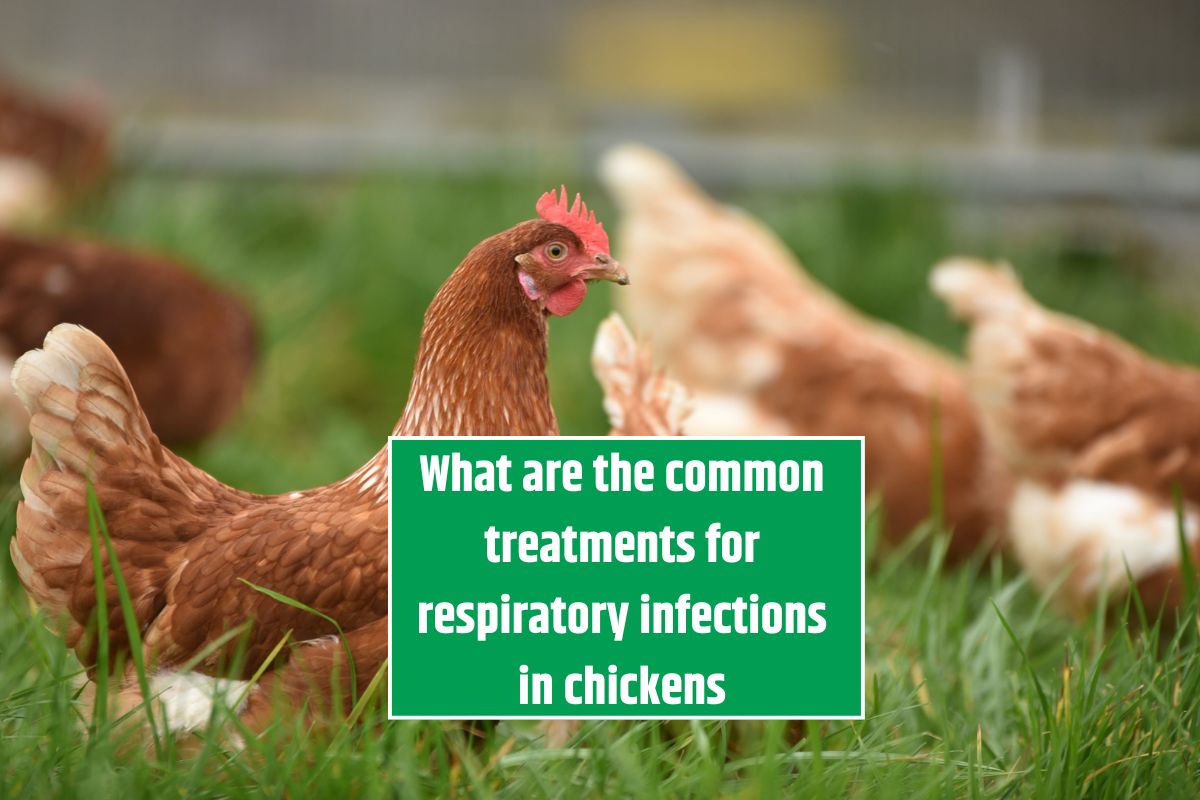Raising backyard chickens can be incredibly rewarding. From collecting fresh eggs to watching your flock scurry toward you, there’s so much joy to be found. However, challenges arise when your chickens fall ill—especially with respiratory infections, which can spread quickly if not addressed early. As a chicken keeper, knowing the symptoms and how to treat these infections is key to keeping your flock healthy.
What Causes Respiratory Infections in Chickens?
Respiratory infections in chickens can stem from several causes, including:
- Poor air quality
- Bacterial infections
- Viral infections
These infections can spread rapidly, making early detection and treatment essential to protect your flock.
Symptoms of Respiratory Infections in Chickens
Watch for these common signs of respiratory trouble:
- Coughing or sneezing
- Nasal discharge
- Swollen eyes or sinuses
- Labored breathing
- Decreased egg production
- Lethargy
- Blue-tinged comb or wattles
If you notice any of these symptoms, it’s time to take immediate action.
How to Treat Respiratory Infections in Chickens
1. Isolate the Infected Bird
At the first sign of illness, separate the sick chicken from the rest of the flock. Isolation reduces the risk of spreading the infection and provides the sick bird with a calm environment to recover.
2. Contact a Veterinarian
Consult your veterinarian to diagnose the cause of the infection.
- Bacterial infections may require antibiotics.
- Viral infections typically don’t respond to antibiotics, so treatment focuses on supportive care.
3. Provide Supportive Care
Supportive care plays a vital role in helping your chickens recover:
- Balanced Diet: Provide a nutrient-rich diet to support healing.
- Fresh Water: Ensure they have access to clean, fresh water at all times.
- Electrolytes and Probiotics: Supplements like Flock Fixer can boost their immune system with essential oils, electrolytes, prebiotics, and probiotics.
Tip: I’ve personally seen Flock Fixer work wonders on sick chickens—it’s a lifesaver for managing illnesses!
Creating a Calm Recovery Environment
Stress can worsen respiratory infections, so maintaining a clean, calm space is essential:
1. Fresh Bedding
Use clean, dry bedding to reduce bacteria and improve air quality. I recommend Coop Recuperate—it extends the life of bedding, keeping it dry and fresh longer.
2. Proper Ventilation
Good airflow without drafts is crucial for preventing respiratory problems. Ensure your coop is well-ventilated but protected from chilly drafts.
Preventing Respiratory Infections in Your Flock
Prevention is always better than treatment. Follow these steps to minimize the risk of respiratory issues:
1. Practice Biosecurity
Limit exposure to outside birds and reduce foot traffic in the coop to avoid introducing harmful pathogens.
2. Regular Health Checks
Inspect your chickens daily for early signs of illness. The earlier you catch symptoms, the easier treatment will be. I make it a habit to check my girls every day while doing chores.
3. Keep the Coop Clean
A clean environment is critical for healthy chickens. Products like Coop Recuperate help maintain a hygienic coop and reduce the buildup of bacteria.
4. Provide Daily Vitamins
Support your flock’s health year-round with supplements like Chicken E-lixir. I’ve been using it for six years, and my chickens have stayed healthy throughout.
Caring for backyard chickens means being prepared for challenges like respiratory infections. By recognizing symptoms early and providing the right care, you can help your flock recover quickly. Keep your coop clean, provide a healthy diet, and monitor your flock daily to ensure long-term health and happiness.
With a little attention and care, you can minimize illnesses and enjoy the many rewards of raising healthy chickens!
FAQ’s
What causes respiratory infections in chickens?
Respiratory infections in chickens can be caused by poor air quality, bacterial infections, and viral pathogens. Overcrowding, poor ventilation, and exposure to sick birds can also increase the risk of infection.
What are the symptoms of respiratory infections in chickens?
Common symptoms include coughing, sneezing, nasal discharge, swollen eyes, labored breathing, decreased egg production, lethargy, and a blue-tinged comb or wattles.
How do you treat respiratory infections in chickens?
Isolate the sick bird immediately, consult a veterinarian for a diagnosis, and provide supportive care. Antibiotics may be prescribed for bacterial infections, while supportive care (balanced diet, clean water, electrolytes, and probiotics) is key for viral infections.
How can I prevent respiratory infections in my chickens?
Maintain a clean and well-ventilated coop, practice biosecurity by limiting exposure to outside birds, and provide daily vitamins like Chicken E-lixir. Regular health checks help catch issues early.
Why is ventilation important for preventing respiratory infections in chickens?
Proper ventilation prevents moisture buildup and improves air quality, reducing the risk of respiratory problems. However, it’s important to avoid drafts that can chill your chickens.











